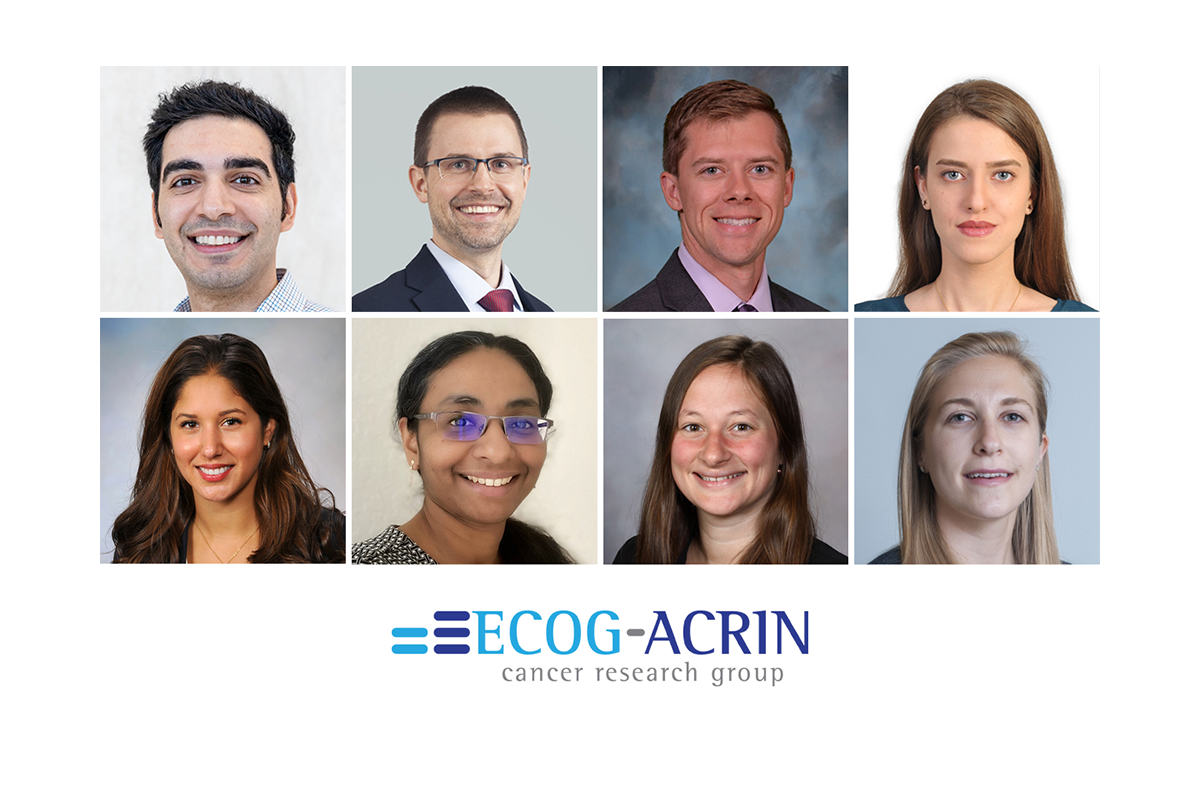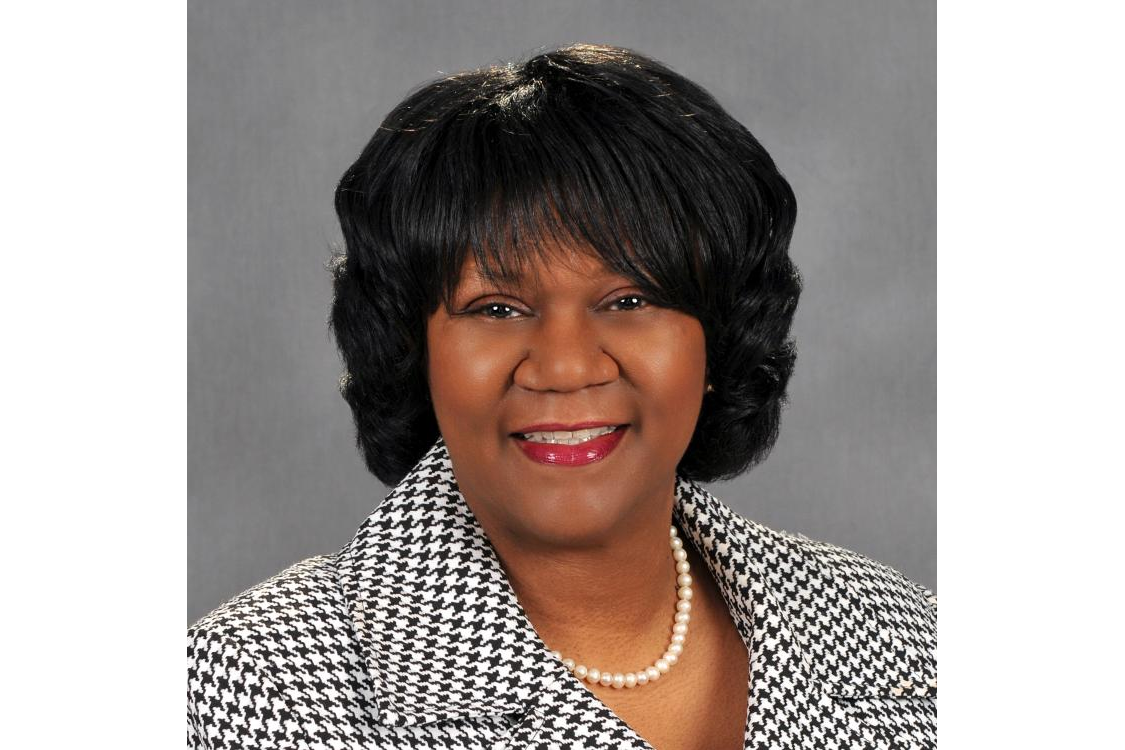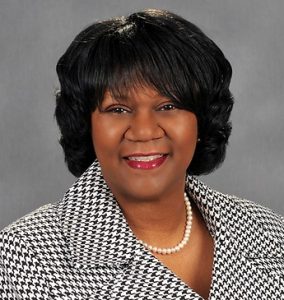
Meet the 2022 Young Investigator Symposium Presenters
October 13, 2022
From the Co-Chairs, October 2022
October 13, 2022Charmaine Green on Cultivating a Career in Health Care Administration

Charmaine Green on Cultivating a Career in Health Care Administration
 ECOG-ACRIN Cancer Research Group (ECOG-ACRIN) consists of over 15,000 individuals passionate about advancing cancer research. These include physicians and scientists—but also nurses, pharmacists, clinical research associates, and other research personnel. Without the support of these groups, ECOG-ACRIN’s research would simply not be possible.
ECOG-ACRIN Cancer Research Group (ECOG-ACRIN) consists of over 15,000 individuals passionate about advancing cancer research. These include physicians and scientists—but also nurses, pharmacists, clinical research associates, and other research personnel. Without the support of these groups, ECOG-ACRIN’s research would simply not be possible.
In this interview, health care administrator Charmaine L. Green, DMin, MDiv, MS (pictured), shares her experience supporting cancer clinical trials and discusses how her role has evolved over the years. Dr. Green began her career as an emergency department admissions clerk and has advanced to become the program coordinator of outreach services and disparity programs for the Center to Eliminate Cancer Disparities at the Sidney Kimmel Cancer Center at Thomas Jefferson University, in Philadelphia, PA.
What is your professional background and how did you get started in health care?
When I finished college, I accepted a job as an admissions clerk in the emergency unit of Einstein Healthcare Network in Philadelphia. Every few years I applied for a promotion or a new position, and by the time I left Einstein I was the administrative assistant to the chief operating officer. While I was there, I took advantage of Einstein’s tuition reimbursement program: I earned a graduate certificate in Healthcare Marketing from Temple University and then a Master in Health Administration (MHA) degree from Saint Joseph’s University. I worked full time during the day and took classes in the evening.
After completing my master’s degree, I accepted a job at Thomas Jefferson University with Dr. Edith Mitchell, who is currently co-chair of ECOG-ACRIN’s Health Equity Committee. The role was program coordinator for the Special Populations Network Grant from the National Cancer Institute (NCI). The goal of that project was to create a system to promote cancer awareness within minority and medically underserved communities. I also supported the STAR cooperative group clinical trial for breast cancer prevention (Study of Tamoxifen and Raloxifene [STAR] for the Prevention of Breast Cancer in Postmenopausal Women).
Now, I manage the Center to Eliminate Cancer Disparities at Jefferson. I support our Lead Academic Participating Site (LAPS) Grant from the NCI, and I maintain our relationships with members of the National Medical Association (NMA), the largest national organization for African American physicians. ECOG-ACRIN and the NMA have a longstanding collaboration to help encourage diverse participation in clinical trials.
In addition to your Master's degree in Health Administration, you also have Master of Divinity (MDiv) and Doctor of Ministry (DMin) degrees.
Yes, in my personal life I am an ordained minister and assistant pastor of a Pentecostal church. To prepare for that I went back to school, thanks to Jefferson’s tuition reimbursement program. Those two degrees took me 11 years to complete. For most of my adult life, I have been in school. I am thankful that the majority of my education was funded through my employers.
Who have been some of your greatest mentors or influences?
My journey from clerkship to where I am now has truly been rewarding. I am thankful that I’ve had some wonderful female mentors. When I worked at Einstein, the chief operating officer was a woman who gave me leeway to learn new things about hospital operations. Now, Dr. Mitchell gives me plenty of flexibility to learn, not just to improve myself, but to improve the work that we do as partners at the cancer center.
How do you feel that your two areas of expertise—health care and spirituality—complement each other?
Our work as health care professionals and health promoters is to encourage wellness and wholeness, and not just of the body. When you think of wholeness you have to think of the mind, body, and then the spirit. You have to consider the thoughts a person has, and how they may impact the body’s response to the care it is receiving. If a person’s mind is clear and their spirit is accepting positivity that can help with their journey to wholeness in body and improvement in health.
What areas of cancer research interest you the most?
I’m passionate about projects that do not just interact with minority populations, but provide ways for them to improve their health. We have a mobile breast cancer screening van at Jefferson that travels to urban areas and offers mammography to people who would not generally come to the institution. We also have a lot of programming for colorectal cancer screening, which has increased the number of minority people receiving care at Jefferson.
In addition, we host educational sessions with community-based physicians in Philadelphia, especially members of the NMA, to provide information about cancer clinical trials and cancer treatments. These physicians may not have access to this information otherwise since they are independent, community-based doctors.
What impact do you hope your work will have on the people you serve?
I hope my work, whether in health care or spiritual health, makes a positive change in someone’s life—that their health is improved, or they develop a new understanding of the connection between their spirit and their health.
What advice do you have for someone who is starting out in health care and wants to advance their career?
When I got my degree, there were not many schools that offered degrees in Health Administration. Now, just about every major college or university has a Health Administration program. Health care has also advanced, and there are so many aspects of administration, such as coding, health care delivery, or operations. My advice is to find an area that interests you, and make sure to take courses in that area. The health field is so vast these days, and there are so many different avenues to take.
![ECOG-ACRIN logo[19516]275×75](https://blog-ecog-acrin.org/wp-content/uploads/2021/03/ECOG-ACRIN-logo19516275x75.png)
